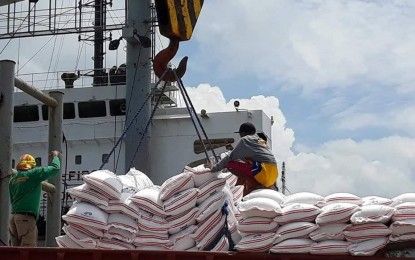With the Department of Agriculture (DA) boasting about having harvested 20.06 million metric tons in 2023, a record in the country’s palay production because of favorable weather in the fourth quarter, the recent signing of the memorandum of understanding between Vietnam and the Philippines for rice imports for the next five years is disturbing.
This means that even as farmers have shown they can keep raising the bar of their production and farm yields, the five-year supply contract for rice inked during President Ferdinand Marcos, Jr.’s state visit to Vietnam will just discourage our local farmers to work harder to help the country attain rice self-sufficiency.
Besides, the Presidential signature on the long-term supply contract with Vietnam could be undertaken with the National Food Authority at the forefront, dealing directly with its private sector.
The NFA has been stripped of its grain import function since the liberalization of the grains sector.
With the liberalization of the rice sector in 2019 by virtue of Republic Act No. 11203 or the Rice Liberalization Act, importation was confined only to private traders (big and small) while the NFA was confined to “buffer stocking” for the requirements during calamities and other emergencies.
The Rice Tariffication Law ensures that liberalization of rice trading would benefit farmers with at least P10 billion a year from the Rice Competitiveness Enhancement Fund up to 2024.
Under the contract signed by President Marcos, the Philippines would import up to two million metric tons (MMT) of rice from Vietnam yearly for five years.
“Under the MOU, Vietnam agreed on a five-year trade commitment to supply, through its private sector, white rice to the Philippine private sector, amounting to 1.5 million to 2 million metric tons per year at a competitive and affordable price,” the Presidential Communications Office said Tuesday, January 30.
The PCO said that the rice trade deal would help ensure food supply in the midst of climate change.
“The MOU on Rice Trade Cooperation creates a framework for rice cooperation between the Philippines and Vietnam to ensure and establish sustainable food supply amidst the impact of climate change, pandemics, and other events external to both countries,” it added.
The Philippines and Vietnam will also exchange information on rice policies, plans and regulations.
Production
Palay production in 2023 reached 20.06 MMT or 1.5 percent more than the 2022 volume of 19.76 MMT, data from the Philippine Statistics Authority (PSA) showed.
“Our goal is to push that rice harvest volume further but that could be a challenge this year because of the water shortage we expect due to El Nino,” DA Secretary Francisco Tiu Laurel Jr. said.
The record palay harvest translates to 13.2 MMT of rice, an amount that allowed the country to reduce rice import volume to 3.5 MMT from 3.8 MMT in 2022.
The DA aims to modernize agriculture to increase food production, particularly palay, ensure food security and increase farmers’ incomes.
The PSA said demand for rice was at 13.5 MMT, but a required 50-day buffer means the country needs an additional 1.85 MMT of rice supply.
Philippine farm output barely moved in 2023, showing signs of flat growth at 0.4 percent with value reaching P1.76 trillion from P1.75 trillion in 2022.
The value of crop production, amounting to P290 billion at constant 2018 prices, was 0.1 percent higher compared to the previous year’s P289.5 billion. It shared 58.7 percent of the total value of production in agriculture and fisheries. The value of palay crop inched up by 0.2 percent, while the value of corn production dropped by 1.8 percent.
Photo Credit: PNA
#Agriculture #DepartmentOfAgriculture #Marcos #PBBM #BBM #NFA #Rice #Import #Vietnam #OpinYon #WeTakeAStand
